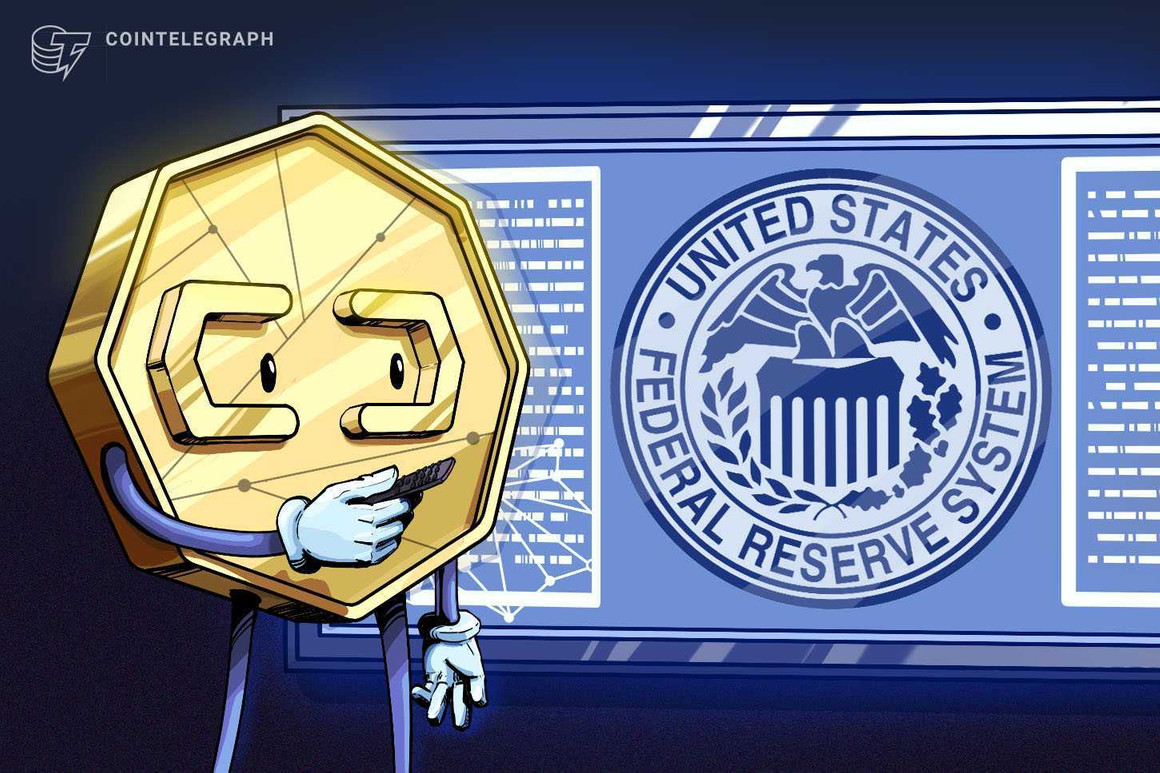Crypto and Know Your Buyer (KYC) tips appear to be an sad marriage — pseudonymity within the digital currencies’ DNA doesn’t match the old-school centralized protocols of conventional finance, however cohabitation is inevitable for the maturing trade.
The stress by no means actually goes away, however even earlier than latest months’ market failures for crypto, the regulators have been clearly hogging the blanket, nudging the established platforms towards extra strict authentication procedures and reducing the privacy-hardline gamers off the market.
Cardano co-founder Charles Hoskinson expressed a well-liked opinion from the trade aspect in the US Congress when he informed legislators that no regulators are doing a superb job with KYC and Anti-Cash Laundering (AML) safeguards in the intervening time. However, will the crypto group attain the purpose each technically and reputationally when it might get a chance for a extra decentralized and extra non-public KYC system?
From passport snaps to third-party databases
It’s exhausting to think about right this moment, however KYC — whereas a regular for the standard monetary system for just a few many years — has solely not too long ago grow to be a default function for the most important gamers in crypto.
For instance, Binance introduced a extra strict identification process for customers solely in 2021 after a collection of authorized controversies throughout the globe. Evidently, there may be nonetheless a myriad of smaller exchanges which might be managing to evade the regulators’ consideration and disrespect the worldwide name for tighter KYC.
However, issues will hardly go as easily for many who choose to take advantage of the gray zone, and it isn’t the overreaching officers and enforcers alone who threaten the existence of this section.
The stress is rising from particular person and institutional newcomers alike. The previous, whereas not essentially being accustomed to the ideological heritage of crypto, is able to commerce sovereignty for comfort on a longtime platform. The latter are hesitant to threat their funds by placing them in an underregulated market. Justin Newton, founder and CEO of Netki — a crypto-focused KYC firm — defined to Cointelegraph:
“As crypto turns into mass market, it’s possible that the overwhelming majority of customers will select to make use of providers which have at the very least some factors of centralization. In the true world, most individuals worth privateness and civil liberties, with out being extremely libertarians. When given the selection between a fairly regulated platform and probably shady and opaque alternate options, most individuals will go for the previous.”
Chatting with Cointelegraph, Lisa Fridman, co-founder and president of Quadrata — a spin-off of Spring Labs centered on growing Web3 passports — characterised KYC’s underdevelopment in crypto as a development drawback:
“There are a selection of economic establishments with trillions of belongings in combination which can not have interaction in decentralized finance right this moment as a result of it lacks compliance-aware frameworks or methods to mitigate the potential for commingling with ‘dangerous actors.’”
With all its acronymic mysteriousness, KYC in crypto works fairly merely. Typically, it consists of an ID affirmation with the snap of a passport and fundamental information being in contrast in opposition to private and non-private information, in addition to cross-checked with different information supplied resembling telephone quantity or e mail tackle. A selfie with a handwritten word can be a typical demand.
A extra superior strategy consists of, peculiar to lending or mortgage platforms, consists of monitoring a buyer’s decentralized belongings or credit score standing. Monetary establishments may even sometimes test the potential buyer’s identify in opposition to acceptable sanctions and politically uncovered individuals (PEP) lists. Sure sorts of monetary transactions might additionally require additional steps, resembling verification of accredited investor standing.
As little KYC as attainable isn’t an answer
The mix of excessive stress from regulators and enforcers and the absence of uniform worldwide requirements contribute to the final stress round KYC in a swiftly maturing trade.
Latest:{Hardware} crypto pockets gross sales enhance as centralized exchanges scramble
Steel Pay CEO Marshall Hayner informed Cointelegraph that the crypto trade globally doesn’t come close to the understandable normal for digital information interchange between conventional monetary establishments, resembling ISO20022. Newton agrees with that, including that the dearth of clear requirements and the liberty of interpretation usually results in malign cost-cutting by market gamers:
“Regulators present steerage and tips, and firms interpret these tips for their very own companies. This results in inconsistency throughout the trade and a considerably pure impact of corporations eager to do as little KYC as attainable to cut back prices in addition to onboarding friction.”
This state of affairs couldn’t final lengthy, given the trade’s ambition to merge with and even disrupt the standard monetary system and rise to scale by attracting institutional buyers.
At first look, the ball is on the aspect of the regulators, who’re progressively transferring to some sort of a holistic framework or at the very least a number of giant ones — just like the Markets in Crypto-Property regulation within the European Union or a Lummis-Gillibrand “crypto invoice” in the US.
Although the transfer from the permissionless period of early crypto absolutely causes main anxiousness amongst crypto evangelists, there may be clear win-win potential. The irony of the scenario, Fridman defined, is that not disclosing any information really limits the vary of potential use circumstances and the chance to be rewarded for establishing a powerful status. Aside from an important connection between a superb and clear credit score story and the flexibility to make use of extra capital-efficient options, some underestimate the all too actual dangers, she believes:
“Because the latest developments within the crypto markets indicated, quite a few members could also be underestimating the dangers concerned. A constructive regulatory framework might assist handle such dangers.”
Verifiable credentials, ZKP and on-chain KYC
The excellent news is that there’s no lack of progressive options the trade might supply to bridge the hole between regulatory calls for and customers’ want for privateness. Considered one of them is verifiable credentials — an open normal for digital credentials that use an simply verifiable digital signature. That signature matches the person (holder), issuer and verifier in a sort of triangle, the place the previous doesn’t should straight present the delicate information to every entity they work together with. This know-how has already captured the eye of the medical sector that confronted new challenges through the COVID-19 pandemic.
One other promising idea is zero-knowledge proofs, a protocol via which a digital authentication processes could be facilitated with out the usage of any passwords or different delicate information. There are examples of self-sovereign identification platforms that enable third-party personnel (as an example, regulation enforcement companies) to find out whether or not a person has a sound driver’s license with out the particular person having at hand over something apart from their ID quantity. A use case extra acquainted to the crypto group is ZCash (ZEC), which employs a particular iteration of zero-knowledge proofs that enable native transactions to stay absolutely encrypted whereas nonetheless being verified beneath the community’s consensus guidelines.
And, in fact, there are a variety of on-chain options for KYC. Quadrata goals to guard delicate buyer information and protect the pseudonymity on-chain whereas additionally permitting a extra compliance-aware crypto ecosystem to evolve. One can nonetheless have a pseudonymous identification that received’t be uncovered to anybody with out the correct credentials whereas tying the underlying actual identification to the locations that matter, believes Hayner, who’s engaged on decentralized identification (DeID) with Proton blockchain:
Latest:How the Metaverse can revolutionize the style trade
“If I can’t see into your checking account why ought to I be capable to see into your crypto account? We’re engaged on compliant privateness that is coming to Proton blockchain, we see this as the longer term for crypto. Safe, non-public, compliant.”
On the finish of the day, it isn’t solely the KYC that ought to change the crypto trade however vice versa as nicely. Turning into extra privateness and information possession oriented, customers drive the demand for choices that enable end-users to have the ability to transact confidently, realizing their figuring out information isn’t in danger. As Newton famous with a touch of optimism:
“The limitation right here isn’t going to be the know-how, however as an alternative the willingness of regulators to review and settle for these new applied sciences.”










